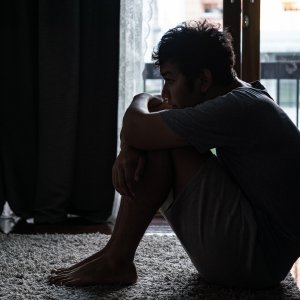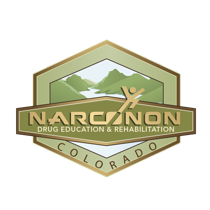Drug Withdrawal Fears Calmed Without Replacement Drugs

Most drug users fear withdrawal more than almost anything.
When a person is addicted to drugs, their ability to make good, sound decisions for themselves is greatly impaired, and getting high is their main priority. A person becomes “officially” addicted to drugs and alcohol once they employ whatever their substance of choice is as their main coping mechanism to get through each day. While addiction can happen to anyone, and not everyone becomes addicted in the same way, the hallmark downward spiral of addiction nearly always ends in death.
Imagine a young person is going through the normal trials and tribulations of growing up.
They deal with feelings of sadness and anxiety, but nothing too severe. They may begin to experiment with drugs and alcohol to take away the sadness and anxiety, but they get through high school mostly unscathed. They head off to college and within the first few days of being on campus, they get offered every drug under the sun. Being that this was the first time they were off on their own without their parents watching their every move, the college freshman starts experimenting with substances. They start doing the “college thing” and attend parties where consuming large amounts of drugs and alcohol is the norm. Meanwhile, those issues with sadness and anxiety continue to grow worse. Masked by the drug and alcohol use these relatively harmless problems experienced by everyone have a chance to grow and take hold. Gradually without learning the necessary life skills the cycle of drug use will continue until the person only feels “normal” while on the drug.
One night at a party, someone offers them Oxy. Now that this person is engaged in a “party” type of lifestyle, taking a painkiller is no big deal.
They take the pill and something miraculous happens. Their sadness and anxiety disappear and they feel good for what they consider to be the first time in their life. They feel so much better, that the next day after the party, they go on the hunt for more painkillers while they should be in class. Over time their mind becomes obsessed with getting more. They call the person who gave them the pills the night before and to set up buying more. And so it begins. The college freshman who was once at the top of their class in high school is addicted to painkillers only months later. In this instance, the Oxy handled one of the biggest problems they felt they had with no effort. They took a pill and their problems appeared to dissolve. In their mind, this drug now has a lot of value to them so they keep using it. Their tolerance increases and eventually the pills aren't affordable, so they wind up on heroin. After a series of overdoses and close calls, the decision is made to get clean and go to treatment, but the withdrawals are too intense. The kicking legs, hot and cold flashes, sweats, anxiety, insomnia, cravings and emotional pain feel seem impossible to get through, so they give up on the idea of getting clean.
As a person progresses through opioid addiction, their life is a series of finding ways to stay well and not go into withdrawal.
Withdrawal from opioids is so painful and vile, it becomes feared more than death. The emotional and physical discomfort is too much to bear.
When a drug user has finally had enough of living one high to the next, detox and treatment are the only viable option. The catch-22 is that they need to get off the drugs to save their lives, but detoxing is terrifying and seems impossible to do without the help of replacement drugs. Many detoxes and treatment centers have employed the use of MAT (medication-assisted therapy) as a “comfortable” way to detox someone from opioids. However, trying to handle a drug addiction with more drugs seems illogical, at best.
Methadone, Subutex, and Suboxone are the most used MAT drugs. These drugs still contain opiates, so the person gets a sort of soft landing off the street drugs or painkillers. These replacement drugs were only designed to be used for a short period of time or in the case of methadone to prevent disease, crime, and death by keeping the addict doped up. Unfortunately, it’s pretty common to talk to a person who has been on Suboxone or methadone for years, so it's not a good solution. A person winds up becoming dependent on a drug to stay off of another, so the addiction never actually gets handled. A band-aid was put on the problem and the addict gets a false sense of doing better. This can cause a person to feel like they don't need treatment, so no more work gets put into getting the root of the problem and actually handling their addiction.
The successes with MAT are subjective.
While people are actively engaged in MAT therapies, they are often abstinent from other opioids, however, once they are tapered off the medication, the recidivism rate significantly increases, according to a study on the NIH’s website.
Using MAT drugs is definitely not a cure for addiction. Using these medications may prevent further treatment, which could allow addiction to progress in the background until the medications are stopped. Additionally, a relapse can follow if maintenance therapy is stopped due to an inability to stay clean from other illicit substances or a failure to follow a strict recovery protocol. Sometimes, drug users flat-out refuse to come off of buprenorphine or methadone due to either a fear of relapsing back onto opioids or a fear of withdrawal, which got them onto MAT to begin with (https://www.ncbi.nlm.nih.gov/pmc/articles/PMC4382404/).
With this form of therapy not working for everyone, the more logical solution is to help a person get sober from all drugs and all addictive medications and not use any MAT drugs. This, in itself, can cause fear and anxiety in the addict because the original mortal fear of drug withdrawal come back into play.
The Narconon program uses a drug-free withdrawal program to get people detoxed when medically safe. Once cleared by the center physician, the addict begins learning to live life drug-free, and according to recent reports from Narconon Colorado, the Narconon withdrawal program is easier and quicker than other detoxification methods they had tried in the past.
“I had tried to detox on my couch a dozen times and I always wound up using again because it was too hard. Detoxing here was way easier because I stayed busy and stayed out of my own head and before I knew it, I was feeling a lot better.”
—B.F., Narconon Colorado student.
Another recent completion from the center’s withdrawal area said:
“I thought coming off everything without taking something to take the edge off was going to be horrible but it wound up being easier than trying to come off subs again and didn't last nearly as long.”
—C.S., Narconon Colorado student.
Some drug users report that taking MAT drugs often just delays the inevitable since these drugs have a withdrawal syndrome often similar to traditional opioids. What’s being seen recently in the Narconon program are people who are desperate to live a sober lifestyle, coming off of years of opioid abuse without taking replacement drugs more easily than if they took Suboxone or methadone.
Narconon’s drug-free withdrawal program is done with medical oversight and utilizes nutrition alongside various cognitive and physical techniques to help a person mitigate the discomforts of drug withdrawal. Narconon does not believe in substituting one drug for another and the main basis of the program is to get to the root of a person's addiction and then handle it. That's one of the many things that makes the Narconon program so successful.
Sources:


